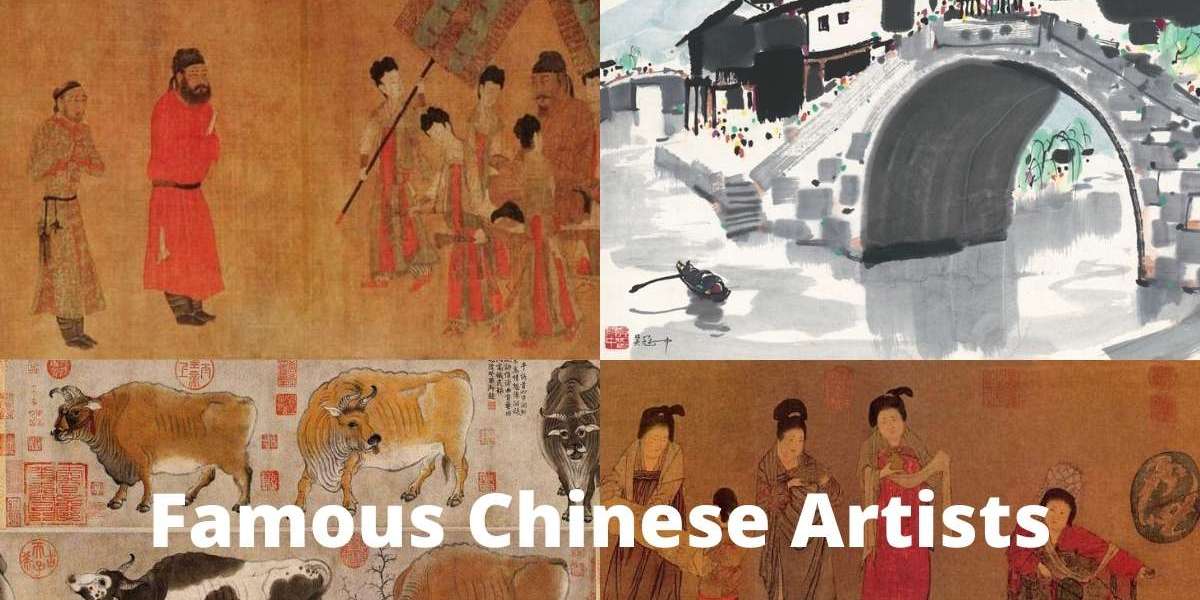China’s rich cultural heritage is deeply intertwined with the contributions of countless talented artists who have left an indelible mark on the world of art. From ancient painters and sculptors to contemporary photographers and installation artists, Chinese artists have continuously pushed the boundaries of creativity and expression. This article delves into the lives and works of some of the most famous Chinese artists, highlighting their significant contributions to the global art community.
Historical Icons of Chinese Art
Gu Kaizhi (344-406 CE)
Known as the "Father of Chinese Painting," Gu Kaizhi was a master of ink and brushwork. His works captured the essence of nature and human emotion. His masterpiece, “Admonitions of the Instructress to the Court Ladies,” showcases his skill and creativity. This scroll painting depicts elegantly dressed women engaged in various activities, celebrated for its meticulous detail and lifelike portrayal of the human form.
Wu Daozi (680-755 CE)
Another prominent figure from ancient China, Wu Daozi was a renowned painter and calligrapher who specialized in landscape and figure painting. His vibrant colors and dynamic compositions captured the beauty and power of nature. His notable work, “Mountain and Water Paintings Without a Fixed Name,” demonstrates his innovative use of brushstrokes and ink washes to evoke a sense of movement and depth.
Modern Masters of Chinese Art
Qi Baishi (1864-1957)
Moving into the modern era, Qi Baishi stands out as a master of traditional Chinese ink painting. He was known for his ability to capture the essence of everyday objects and scenes with minimal brushstrokes. His works, featuring birds, flowers, and landscapes, are celebrated for their simplicity and elegance. Qi Baishi's influence on subsequent generations of Chinese artists is profound, as his innovative techniques continue to inspire.
Ai Weiwei (b. 1957)
A contemporary artist and activist, Ai Weiwei has made significant impacts on the global art scene. His works often address pressing political and social issues through various mediums, including photography, sculpture, and installation art. Characterized by boldness and confrontational themes, Ai Weiwei's pieces challenge viewers to confront difficult truths about society. His commitment to freedom of expression has made him a symbol of creativity and courage.
Liu Xiaodong (b. 1963)
Liu Xiaodong is recognized for his landscape paintings created using a unique technique that involves applying layers of paint directly onto the canvas with his fingers. This method enables him to capture the texture and detail of natural scenes intimately. His works have garnered international acclaim, showcasing an innovative approach to traditional Chinese painting.
Chen Man (b. 1980)
Famous Chinese artist Chen Man is a contemporary photographer whose work explores themes of identity, gender, and cultural hybridity. Her photographs often feature elaborate sets and costumes, merging traditional Chinese elements with contemporary fashion. Chen Man’s innovative and thought-provoking approach to photography has earned her international recognition.
Conclusion: The Enduring Legacy of Chinese Art
China’s artistic heritage is a testament to the creativity and ingenuity of its people. From ancient masters like Gu Kaizhi and Wu Daozi to modern icons like Ai Weiwei, Liu Xiaodong, and Chen Man, Chinese artists have consistently expanded the boundaries of creativity and expression. Their works—whether paintings, sculptures, photographs, or installations—remind us of art's enduring power to inspire, challenge, and connect us all. As we continue to explore and appreciate the contributions of these famous Chinese artists, we recognize the vital role that art plays in our lives, transcending time and space to connect us with the past and inspire our future.



